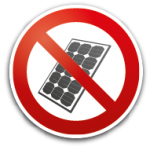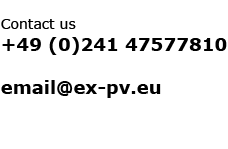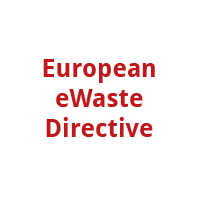The Plain & Simple WEEE & “Elektrogesetz” Compliance Scheme
for PV Modules
THE PROBLEM
What’s WEEE?
Since 2003, the European WEEE Directive [Waste Electrical and Electronic Equipment] governs the putting on the market, the take-back, and the recycling of electrical and electronic equipment [EEE]. It defines the regulatory framework for the specific handling in the different member states of the EU. Due to dependencies of national recovery structures there is no pan-European implementation of the WEEE Directive. Instead, each member state has its own national legislation, requiring an individual Compliance solution per country.
What’s the “Elektrogesetz”?
The “Elektrogesetz” [“ElektroG”] is the German transposition of the WEEE Directive. Following the underlying “Polluter Pays Principle” it defines an extensive range of requirements and obligations for the producer or the first company that puts EEE onto the German market, above all the full coverage of the recycling costs. The “Stiftung EAR®” is the official Clearing House for Germany. In transposition of the updated WEEE2 Directive the new “ElektroG2” contains important additional regulations on the scope, the categorization of products, and the take-back of WEEE. It came into force on 24 October 2015.
Why are PV modules affected?
The European PV industry didn’t manage to present an own take-back and recycling solution for old modules to the European Commission. Thus, Brussels decided to put PV modules as “electrical equipment” under the scope of the existing WEEE Directive. Due to the complexity and the fragmentation of the different national implementations of the Directive, the efforts for an own solution at producers and importers of such equipment is quite high. Despite various approaches to establish an EU wide take-back system for old PV modules no such “pan-european solution” exists yet. In Germany, producers and importers need to provide a compliance solution for the new “ElektroG2”, consisting of a registration at the German WEEE Clearing House as well as additional obligations.
What needs to be registered?
| Product type | Examples | WEEE relevant? |
| PV modules | Monocrystalline solar modules, Polycrystalline solar modules, Thin film modules, other types of PV modules (semiconductor solar modules, organic solar modules, etc.) | Yes, since 1 February 2016 (1) |
| Equipment with built-in PV modules | Calculators, balances, garden lighting products | Yes |
| PV installation equipment | Power inverters, charging controllers, measuring and control equipment | Yes |
(1) Also for fixed installation in motor vehicles (e.g. mobile homes) and boats. |
||
Who needs to act?
What’s to do
Producers and importers of PV modules need to provide the Compliance of the products along the following three categories, before they may be offered and sold in Germany:
No Compliance – No Market!
Which fines and sanctions exist?
THE SOLUTION
Ex-PV® – Our one-stop WEEE solution
The complexity and the complicated handling of the German “Elektrogesetz” make WEEE compliance in Germany a significant challenge for producers and other affected companies. An own solution has to satisfy a wide range of requirements and obligations. Normally, there are several different contacts, suppliers, and cost centers involved, resulting in high efforts and costs. In addition, reliable budgeting is near to impossible, due to the bad predictability of the variable costs. Also, errors during the implementation of the WEEE compliance and also the dynamics of the underlying regulations pose a high risk for all involved parties. Ex-PV® provides a one-stop solution for all requirements and obligations resulting from the German “Elektrogesetz”:
Hints
FAQ
CONTACT
Ask for a quote – free of charge and with no obligations
We can gladly offer you a solution for all your requirements from the German “Elektrogesetz”. Please use the following form to contact us, or call us or writen an eMail.
